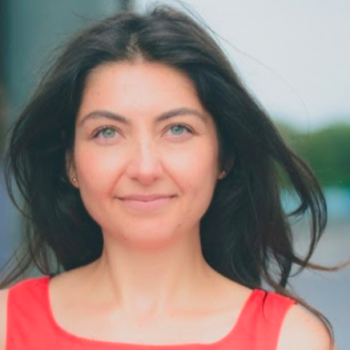Kathy Saliba

Talk to others and share your feelings. The more we talk about it as a society, the less stigma there will be about this disease.
November 30th, 2017
Kathy is 38-year-old PR executive, who lost her grandfather to Alzheimer’s disease.
I don’t remember the exact time my grandfather, Victor, was diagnosed with Alzheimer’s Disease. I know he was in his mid-eighties and I was 16 years old when I found out — when I learned that the person I loved the most next to my parents would forget me. My situation was even more difficult in that we lived in Toronto, Canada, and my grandpa was back in Warsaw, Poland. By the time I saw the progression of the disease in person, it was immense.
My grandpa and I were very close. He was the one that taught me how to tie my shoelaces, took me for long walks in the park, put up my swing set, and told the most incredible stories of his World War II experiences. When we moved away, he would write me long letters that I keep to this day. The most heartbreaking part for me was when I went to visit him after not seeing him for quite some time and he didn’t recognize me. I was devastated. Sometimes he’d recount stories of his granddaughter (me) without realizing that I was sitting right in front of him. I stayed strong and patient and listened to all his stories.
When I found out about his diagnosis, I thought he’d be forgetful. I didn’t know about the other issues that come along with Alzheimer’s, such as losing one’s temper, a lack of patience and forgetting how to do the most basic of functions. They don’t teach you about this in high school. And my friends didn’t seem to understand the magnitude of it either. I don’t remember too many people talking about the disease back then, and aside from our family, there were no support groups.
When I was a teen, there was no Purple Elephant — no forum where I could chat with other young people about what they went through — and no friends that I could confide in. I felt alone, distraught and helpless. My advice to young and old alike is to reach out to others. Connect with doctors, family members, social workers, friends, and networks that are nowadays available on social media platforms. Talk to others and share your feelings. Everyone is in a different situation, but talking about it is helpful. And the more we talk about it as a society, the less stigma there will be about this disease that impacts so many millions of people around the world.